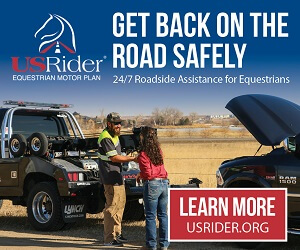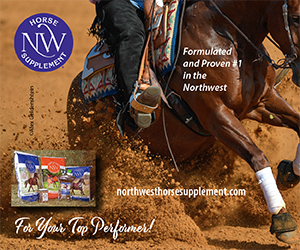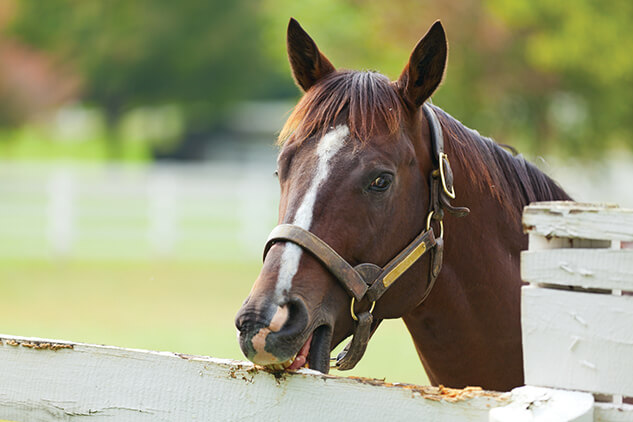Are you using a cribbing collar? Please reconsider. Cribbing collars are tormenting. They may discourage the behavior, but they do not relieve the urge. The hormonal response that results can lead to oxidative stress throughout the body, potentially harming vital organs, as well as joints and the digestive tract. Inflammation can also occur in the brain, eventually leading to equine Cushing’s disease (PPID) as well as leptin resistance. With so much potential harm, why not see if there is a better way?
Cribbing involves the horse pressing his top teeth against a solid object, arching his neck, and swallowing air in a rocking motion. A grunting or gulping noise emerges. The true cause of cribbing is unknown, but the underlying problems include genetics and early weaning, as well as stressful and painful circumstances. It can be such a seriously addictive habit that many horses will prefer it to eating, and so they will slowly waste away.
The following tips can help reduce the physical discomfort and mental strains that contribute to cribbing:
- Provide freedom to graze and roam. This will have a remarkable impact. If it is not feasible, give the horse as much outdoor space as possible.
- Keep hay available 24/7. This one simple change will calm your horse’s demeanor. It will also make him healthier and easier to manage.
- Do not isolate your horse. Cribbing is not contagious! Companionship is important for well-being.
- Treat for ulcers. Most cribbers have ulcers. The cribbing action helps produce saliva, a natural antacid. Stress, forage restriction[i], and stalling makes things worse. Basic nutritional management to cure ulcers includes providing hay 24/7, offering clean water nearby, avoiding starchy feeds (such as oats and corn) and sweet feeds, and restoring microbial populations through pro/prebiotic use.[ii]
Bottom line
Cribbing is generally a result of early weaning, stress, and ulcers. Cribbing collars only may do more damage and do not cure anything. Taking measures to reduce stress by allowing freedom, companionship, and free-choice forage feeding will have a significant impact on helping your horse become healthy and reducing the urge to crib.
[i] Getty, J.M., Restricting forage is incredibly stressful. www.gettyequinenutrition.biz/library/restrictingforageisincrediblystressful.htm
[ii] Getty, J.M., Don’t let your horse develop an ulcer. www.gettyequinenutrition.biz/Library/DontLetYourHorseDevelopanUlcer.htm
Find a world of useful information at www.GettyEquineNutrition.com.

Juliet M. Getty, Ph.D. is an independent equine nutritionist with a wide U.S. and international following. Her research-based approach optimizes equine health by aligning physiology and instincts with correct feeding and nutrition practices. Dr. Getty’s goal is to empower the horseperson with the confidence and knowledge to provide the best nutrition for his or her horse’s needs. Learn more at www.gettyequinenutrition.com.






